
April 25 – Call for proposals system opens July 10 – Proposal submission deadline(extended) August 10 – Online registration deadline August 21 - 23 – Conference 
Updated on Jul 28,2020: Poster Presentations Updated on Jul 20,2020: Conference Proceedings Conference Program Conference Agenda pdated on Jul 17,2020: VooV Meeting User Manual Updated on Jun 25,2020: ——> Online Registration opens <—— Downloads: 2020 SoTL-China Call for proposals(Updated) Updated on Apr 25,2020: ——> Proposal submission system is open <—— Updated on Jan 21,2020: Downloads: 2020 SoTL-China Call for proposals Instructions for full paper submission 
Host: 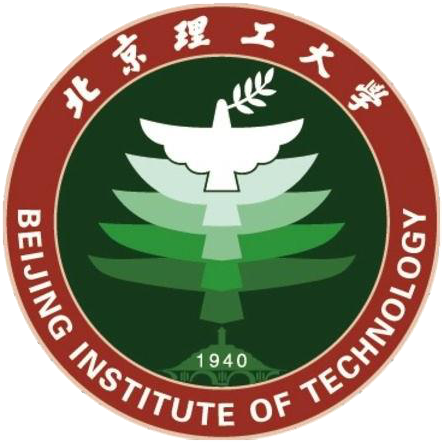
Beijing Institute of Technology Co-Hosts: 
International Society for the Scholarship of Teaching and Learning 
Chinese Association for Suzhi Education 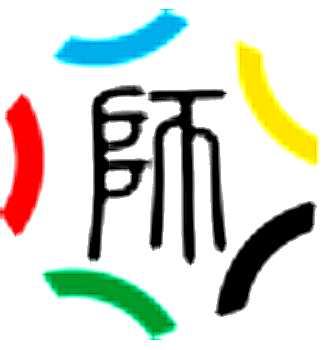
Higher Education Institutions Teacher online Training Center 
Chinese Higher Education Development Network 
Editorial Department of Open Education Research 
Journal of Higher Education Development and Evaluation 
Alliance Group of Application-Oriented Curriculum Construction

Committee Chairman
Zhao Juming, Consultant of the Center for Enhanced Learning and Teaching, Beijing Institute of Technology; Professor of Huazhong University of Science and Technology
Committee Co-Chairman
Michelle Yeo,President of ISSoTL, the Academic Director of Mount Royal's Institute for the Scholarship of Teaching and Learning, Mount Royal University
Chen Xiangming, Chair of Academic Committee of Graduate School of Education, Peking University
Pang Haishao, Director of the Center for Enhanced Learning and Teaching, Beijing Institute of Technology
Committee Members
Kathy Takayama, University of Maryland
Karena Waller, University of Melbourne
Colin Jevons, Monash University
Spencer Benson, Editorial Board Member, Journal of Excellence in College Teaching (JECT), University of Maryland
Fang Yanping, Nanyang Technological University
Shi Jinghuan, Tsinghua University
Sang Xinmin, Nanjing University
Bie Dunrong, Xiamen University
Wang Qiong, Peking University
Li Mang, Beijing Normal University
Lu Guodong, Zhejiang University
Fan Yihong, Southwest Jiaotong University
Poon Wai-Yin Isabella, Chinese University of Hong Kong
Sun Jianrong, Macau University of Science and Technology
Yu Xinjie, Tsinghua University
Li Fengxia, Beijing Institute of Technology
Liao Xiaozhong, Beijing Institute of Technology
Ma Yongxia, Beijing Institute of Technology
Zhang Hongwei, Sichuan University
Liu Zhijun, Dalian University of Technology
Sun Hua, Peking University
Bao Chonggao, Xi 'an Jiaotong University
Ding Yan, Fudan University
Wang Like, Shanghai Jiaotong University
Cen Yuhao, Shanghai Jiaotong University
Liu Bin, University of Science and Technology of China
Li Saiqiang, Shandong University
Li Guang, Northeast Normal University
Dong Jun, Beijing Jiaotong University
Zhou Junqiang, Zhejiang Normal University
Xie Yangbin, Ocean University of China
Zhou Ling, Beijing Institute of Technology
Wang Ying, Beijing Institute of Technology
Gao Ling, Beijing Institute of Technology
Bao Haiqin, Beijing Institute of Technology
Zheng Jiaran, Beijing Institute of Technology
Gao Qi, Beijing Institute of Technology

Committee Chairman
Bao Liying, Vice Chairperson of the University Council, Beijing Institute of Technology
Committee Co-Chairman
ChngHuang Hoon,President-elect of The International Society for the Scholarship of Teaching and Learning(ISSOTL), Associate Provost (Undergraduate Education) of the National University of Singapore
Li Jian, Dean of School of Humanities and Social Sciences, Beijing Institute of Technology
Li Ping, Director of the Department of Undergraduate Academic Affairs, Beijing Institute of Technology
Committee Members
Li Yan, Associate Director of Higher Education Institutions Teacher online Training Center
Li Zhenjian, Assistant to the President, Director of Office of Planning and Finance, Director of Office of BIT Education Foundation, Beijing Institute of Technology
Yan Yan, Assistant to the President, Director of Department of Human Resources, Beijing Institute of Technology
Zhang Xiaoyi, Secretary-General of the Chinese Higher Education Development Network (CHED), Director of Center for Teaching and Learning Development, Shanghai Jiao Tong University
Wei Zhihui, Editorial Director of Open Education Research
Jin Cheng, Chief Editor of Higher Education Development and Evaluation
Zhang Zhensun, Secretary-General of Collaborative Innovation Center for Curriculum Construction of National Center for Schooling Development Programme, Ministy of Education
Wei Mingshan, Director of BIT Office, Beijing Institute of Technology
Lin Wei, Executive Deputy Director of News Center, Beijing Institute of Technology
Wang Junzheng, Executive Deputy Dean of the Graduate School, Beijing Institute of Technology
Liu Xiangdong, Director of Office of International Affairs, Beijing Institute of Technology
Lou Xiuhong, Dean of General Affairs of School of Humanities and Social Sciences, Beijing Institute of Technology
Li Jinglian, Dean of School of Foreign Languages, Beijing Institute of Technology
Li Zhiqiang, Director of Network Information Technology Center, Beijing Institute of Technology
Luo Jia, Director of Center for Faculty Development, Beijing Institute of Technology
Pang Haishao, Secretary-General of Chinese Association for Suzhi Education
Gao Qi, Lecturer of School of Automation of Beijing Institute of Technology, Fellow of International Society for the Scholarship of Teaching and Learning( ISSOTL Fellow )
Conference Secretariats:
Center for Enhanced Learning and Teaching (CELT)
School of Humanities and Social Sciences
Beijing Institute of Technology
Gao Qi (+86) 10 68913261 gaoqi@bit.edu.cn
Zhang Yeye (+86)10 68918556 zhangyeye@bit.edu.cn
Sui Yi (+86)10 68915227 suiyi@bit.edu.cn
Website: http://celt.bit.edu.cn
Email: celt@bit.edu.cn
|
2020 SoTL-China International Conference August 21st – 23rd , 2020 Conference theme SoTL:Global Vision & Local Practice The concept of the domains of scholarship was first proposed by Ernest L. Boyer in 1990 and then developed by Lee Shulman and others. The Scholarship of Teaching & Learning (SoTL) has received widespread attention. A popularization and promotion campaign of SoTL was first launched in North America, Britain and Australia and expanded to the world, advancing the teaching reform in higher education. The higher education in China has its own unique national specificities and cultural traditions. This conference will focus on the following topics: how to conduct effective SoTL research and practice in different cultures; how to localize teaching philosophy and teaching models; and how to strengthen the construction of a global academic community of SoTL. The conference welcomes global scholars to share their latest research outcomes in teaching and learning. Categories 1.The domains of scholarship in different cultural backgrounds The domains of scholarship (consisting of the scholarship of discovery, integration, application, and teaching and learning) originated in the English culture. How was it developed and promoted in non-English cultures, especially in the Eastern culture? What are the different characteristics and development paths in different cultures? 2.SoTL from an international perspective The development of SoTL is both public and regional. How can we overcome cultural differences through extensive international exchanges and cooperation to build a global academic community of SoTL? 3.The practice of SoTL in higher education in China Influenced by the culture and national specificities, higher education in China is unique in its own way. How can SoTL be localized in China to facilitate innovation in teaching and the Double First Class University Plan (developing world-class universities and world-class disciplines)? 4.SoTL in different disciplines It is crucial to apply SoTL in specific disciplines. How can SoTL be applied in different disciplines? Participants are welcome to share cases of teaching research and innovation in various disciplines, programs and courses. 5.The domains of scholarship and faculty assessment How can the domains of scholarship (namely the scholarship of discovery, integration, application, and teaching and learning) be used to assess faculty and establish a comprehensive and scientific assessment system? How to combine the concept of scholarship domains with innovative entrepreneurship education, interdisciplinary teaching and general education courses? Agenda in glance
Time (China Standard Time) |
Time(EDT) |
Activities |
Activity Form |
Note |
Friday, August 21 19:00 -22:00 |
Friday, August 21 7:00 -10:00 |
Pre-Conference Workshops 1,2,3,4 |
Conference attendees will receive the link of specific online session in the run-up to the date of the event. |
Quota is limited, Need to register in advance. |
Saturday, August 22 8:30-12:00 |
Friday, August 21 20:30-24:00 |
Welcome& Opening Ceremony and Keynote Speech |
Simultaneous Interpreting |
Saturday, August 22 19:00 -22:00 |
Saturday, August 22 7:00-10:00 |
Conference Sessions |
Need to participate in sessions with real names. |
Sunday, August 23 8:30-12:00 |
Saturday, August 22 20:30-24:00 |
Keynote Speech and Closing Ceremony |
Simultaneous Interpreting |
Sunday, August 23 19:00 -22:00 |
Sunday, August 23 7:00-10:00 |
Post-Conference Workshops 5,6,7,8,9 |
Quota is limited, Need to register in advance. |
Speakers and Moderators 1.Keynote Speakers
 |
Ren Youqun, Doctor of Education, researcher, doctoral supervisor. Professor Ren is now director-general in charge of teachers' affairs with the Ministry of Education of PRC. |
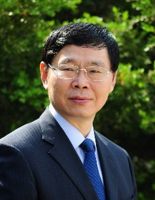 |
Guo Dongming, Doctor of Engineering, professor, doctoral supervisor, Academician of Chinese Academy of Engineering.Professor Guo serves as President of Dalian University of Technology at present. Professor Guo has long been engaged in research on precision and ultra-precision manufacturing technology, digital manufacturing technology and equipment. Professor Guo has won the 1st Prize of the National Technological Invention Award, the 1st Prize of National Award for Science and Technology Progress (Innovation Team), the 2nd Prize of the National Technological Invention Award and the the 2nd Prize of National Award for Science and Technology Progress. |
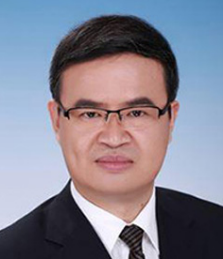 |
Zhang Jun, Doctor of Engineering, professor, doctoral supervisor, Academician of Chinese Academy of Engineering.Professor Zhang is now President of Beijing Institute of Technology. He has long been engaged in the technical and systematic research and personnel training in the operation monitoring of civil aviation air route network and satellite-based air route. Professor Zhang has won two 1st Prize of the National Technological Invention Award and the 1st Prize of National Award for Science and Technology Progress. |
 |
Poon Wai-Yin Isabella, Professor Poon is now a Professor at the Statistics Department of The Chinese University of Hong Kong and the Vice President of the University, responsible for education. Professor Poon specializes in structural equation modeling, impact analysis, classified data, the application of statistical methods in psychology and education and so on. Professor Poon is also the founding chair of Hong Kong Higher Education Excellence Alliance, who has won the Hong Kong UGC Outstanding Education Award. |
 |
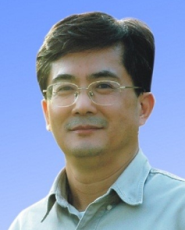 |
Zhao Juming,Professor, Institute of Education, Huazhong University of Science and Technology .He is Consultant of the Center for Enhanced Learning and Teaching (CELT), Beijing Institute of Technology He serves as Vice Chairman and Secretary General of Academic Committee on Development of Universities and Colleges in China Higher Education Society. Research interests: studies on universities and colleges, American higher education, and policies on higher education. |
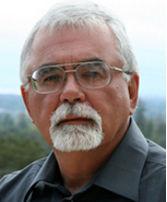 |
Anthony Ciccone,Professor, University of Wisconsin (Milwaukee),He has served as President of the International Society for the Scholarship of Teaching and Learning (ISSOTL) and Director of the Carnegie Academy for the Scholarship of Teaching and Learning (CASTL). He is former director of the UW System Undergraduate Teaching Improvement Council (UTIC, now OPID) and the Wisconsin Teaching Fellows Program. Research Interests: French teaching, localization and internationalization of SOTL. |
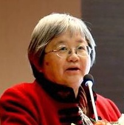 |
Chen Xiangming,Professor, School of Education, Peking University. She is president of the Academic Committee of the Basic Education Research Center of Peking University, member of the Academic Committee of Social Sciences, and director of the World Association of Lesson Studies. Dr. Chen’s major research interests are research methodology in social sciences, teacher education, curriculum and instruction. |
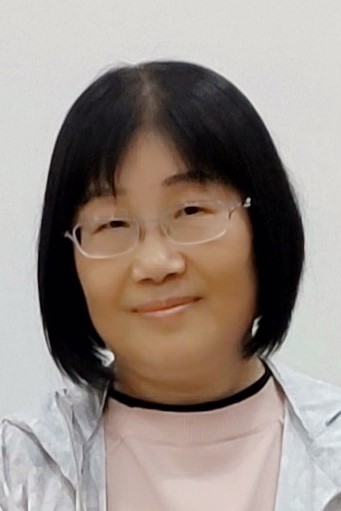
|
Fan Yihong, Professor of Higher Education, Institute of Education, Xiamen University and Advisory Professor of Academic Affair’s Office, Southwest Jiaotong University, China. Her research and practice areas range from organizational learning, management and leadership for fostering creativity and innovation, faculty development, supporting systems for innovation in teaching and learning, to creativity education, holistic education, blended learning, innovative course design and implementation, etc. |
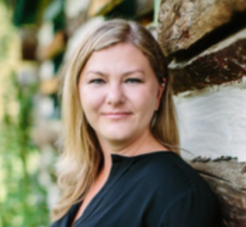
|
Michelle Yeo,Academic Director of Institute for the Scholarship of Teaching and Learning; Faculty Development Consultant of Academic Development Centre, Mount Royal University; President of International Society for the Scholarship of Teaching and Learning (ISSOTL). Her research interests include faculty development in curriculum, assessment, Scholarship of Teaching and Learning, and decolonizing practices in higher education. |
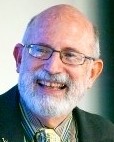 |
Milton Cox,he is founder of the Center for the Enhancement of Learning and Teaching at Miami University where he initiated and directs the annual Original Lilly Conference on College Teaching from 1982. He is also founder and Editor-in-Chief of the Journal on Excellence in College Teaching and the Learning Communities Journal. Milton has been project director of state and federal grants establishing faculty learning community programs at other institutions, is co-editor of the book, Building Faculty Learning Communities. He is recipient of a certificate of special achievement from the Professional and Organizational Development Network (POD) in Higher Education in recognition and appreciation of notable contributions to the profession of faculty, instructional, and organizational development. |
2.Moderators of Workshops
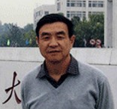
Sang Xinming, Professor and Doctoral Supervisor of Higher Education, Institute of Education, Nanjing University. Adjunct Professor at National Center for Education Development Research. Adjunct Professor at Peking University (1993-2008). His research interests: education philosophy, future education, education technology and learning science, education informatization and university reform. 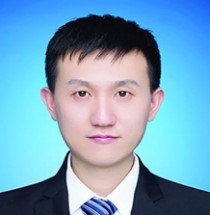
Xie Yangbin,Teacher of the Learning Support Center of Ocean University of China, Doctor of Higher Education. His research interests: SoTL, the science of learning and educational technology. |
|
Pre-Conference Workshop 1 Team Learning and Teaching in SoTL This workshop is guided by the conception of "Tai Chi Acdemy" and contemporary science of learning.In this workshop, we will discuss the issues of team teaching and team learning in the combination of theory and practice.We will organize teachers to reflect, discuss, create cases, micro-classes and do other practical activities of SoTL.Participants are asked to "come with results, come with questions, come with expectations".The experts will share their relevant theories, practices and cases, and invite the students to show up, including the "Tai Chi Acdemy" team model. Participants will involve in the process of creating, communicating, and publishing practical results of SoTL to deepen their understanding of SoTL. |
 |
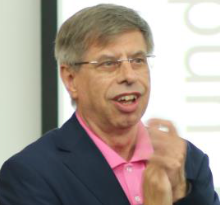
Spencer Benson,is the Consultant at the Graduate School and the Teaching and Learning Transformation Center, the Founder and Director Education Innovations International Consulting (Eii-Consulting, LLC), University of Maryland. He is also the Editorial Board Member of Journal of Excellence in College Teaching (JECT) and Learning Communities Journal (LCJ), USA. He is the Consultant of Center for Teaching and Learning of Nanjing University. Research Interests: teacher development, outcomes-based education (OBE), innovative pedagogy, instructional evaluation, STEM pedagogy and so on. |
|
Pre-Conference Workshop 2 Integrating SoTL into Your Teaching: How Teaching is Research In this virtual hands-on, minds-on workshop we will discuss the overlaps between; good teaching, scholarly teaching, teaching as research (TaR) and scholarship in teaching and learning (SoTL). We will look at their interconnections, differences, and how they build upon each other. As a community of learners, we will identify the challenges and benefits of integrating SoTL into one’s own teaching. Participation in this workshop will help you to identify and carry out the steps and processes necessary to envision, implement, and disseminate a SoTL project. Participants are encouraged to think about a teaching or learning issue or question that interest them, and bring ideas, questions, and examples from their own teaching they might want to develop into a SoTL project. |
 |
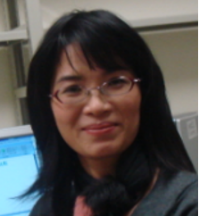
Ding Yan, Associate Professor of Research Institute for Higher Education, Fudan University. Dr. Ding is vice director of the Center for Teaching and Learning of Fudan University, member of the Chinese Higher Education Development network (CHED) Academic Committee, and member of the Japan Comparative Education Society. Her research interests include teaching and learning development in universities, teaching evaluation, pedagogics etc. |
|
Pre-Conference Workshop 3(Class is Full) Exploring Research Questions in Classroom Teaching In this workshop, the lecturer will lead you to discuss and solve the most basic problem in teaching research, that is, "how to determine effective teaching research questions" and "how to use classroom observation tools to explore research questions". It includes: 1. What are the different types of teaching research questions? 2. How to formulate a clear and meaningful teaching research question? 3. How to test whether the questions of teaching research are appropriate? 4. How to do classroom teaching observation and analysis by using tools? |
 |
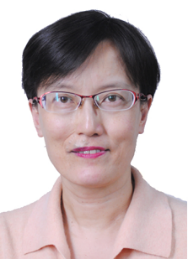
Li Saiqiang, Professor and Deputy Director of the Center for Teaching Advancement and Faculty Development, Undergraduate School, Shandong University. She is member of the Chinese Higher Education Development network (CHED) Academic Committee, trainer of the Instructional Skills Workshop (ISW), and Fellow of Higher Education Academy (HEA) UK. Her research Interests: the development of college teachers, the academic guidance for college students. 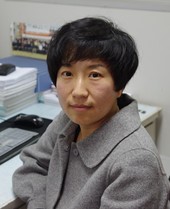
Yang Xianmei, Associate Professor of school of life sciences, Fudan University. She has achieved her PhD in at University of Texas at Austin. Her research focus on molecular genetics of tumors. |
|
Pre-Conference Workshop 4(Class is Full) Practical Strategies of SoTL Activities The workshop is conducted in a two-line parallel and interactive way so that participants can learn by doing. One line is to introduce the basic methods and research steps of the SoTL Activities of university teachers, encourage teachers to reflect on the problems in teaching practice, transform the problems in teaching practice into research questions, and explore topics with research value; the other line is to invite front-line teachers to share the successful experience in SoTL Activities, clarify the design ideas and internal logic of teaching and research topics through case analysis, and select research methods and design research steps according to the topic selection. Finally, take two papers on the scholarship of teaching in the journal of Science as examples, deconstruct the research process and presentation of teaching academic achievements, and share domestic and foreign resources of SoTL Activities. |
 |
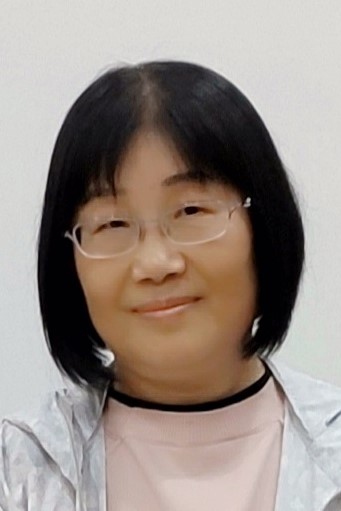
Fan Yihong, Professor of Higher Education, Institute of Education, Xiamen University and Advisory Professor of Academic Affair’s Office, Southwest Jiaotong University, China. Her research and practice areas range from organizational learning, management and leadership for fostering creativity and innovation, faculty development, supporting systems for innovation in teaching and learning, to creativity education, holistic education, blended learning, innovative course design and implementation, etc. |
|
Post-Conference Workshop 5 PBL Interdisciplinary Course Design in the Perspective of Multiple Scholarship The objective of this workshop is to let the participants experience how multiple scholarship and PBL could lead to innovative course design and development. Specifically, through sharing four innovative courses ranging from engineering, general education, specialized program and interdisciplinary courses, participants would learn how multiple scholarship could lend the idea of expanding teaching and learning to connecting learning with solving real life problems and integrating knowledge from different fields. The New Engineering course Steel Structure Design used PBL in course design and implementation; the interdisciplinary General Education courses The Dance of Life, Thinking of Design applied multiple scholarship and PBL to promote all-round development of students; and the 10-teacher trans-disciplinary course Co-Creating a Life of Beauty and Wisdom facilitated student self-organized group learning and PBL. All those courses transformed teacher-centered classroom teaching to creative students learning. The participants of this session can exchange and discuss the design, development and implementation of these courses with the course designers. If online conditions permit, participants can use the PBL Outline in groups to discuss the ideas of and approaches to designing a PBL course or PBL interdisciplinary course. |
 |
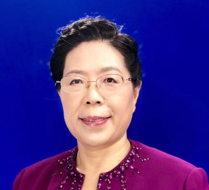
Pang Haishao, Professor and Doctoral Supervisor of Higher Education at the School of humanities and social sciences, Beijing Institute of Technology. She is the Director of Center for Enhanced Learning and Teaching (CELT), and the Secretary-General of Chinese Association for Suzhi Education (CASE). She is the Visiting Scholar of Columbia University and the Chinese University of Hong Kong. Her research concerns General Education and Suzhi Education, College Faculty Development, Scholarship of Teaching and Learning and Higher Education Management. 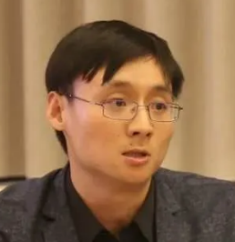
Wang Qing, Assistant professor of education in School of Humanities and Social Sciences, Beijing Institute of Technology. He has achieved his PhD in education at Purdue University, College of Education. His research interests include curriculum and instruction, teacher education, and narrative inquiry. Dr. Wang has hosted several workshops focusing on instructional design and built a MOOC on discussion-based teaching method. |
|
Post-Conference Workshop 6 Instructional Design on Student-centered Blended Learning In this workshop, participants will systematically learn the instructional design on student-centered blended learning by reflecting on their own student-centered concepts, recognizing the main models of blended learning, and designing blended teaching plan. Participants will also be provided with design tools and templates. Through the workshop learning, participants will learn to acknowledge the student-centered learning concept and be able to combine their own teaching practices to develop a pilot design on student-centered blended learning. |
 |
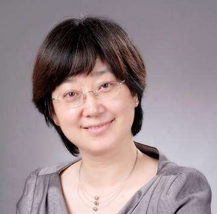
Wang Qiong, Professor in Educational Technology, Peking University. Director of the X-Learning Center of Peking University. Her research interests include rationale and research methodology for educational technology, e-learning environment design, instructional design, ICT national strategy, digital campus plan, and teacher professional development. Dr. Wang recently focus on AIED and online data analysis. |
|
Post-Conference Workshop 7 (Class is Full) How Teachers Do Teaching Research In this workshop, we will introduce the research that teachers can carry out, how to carry out the research, and how to publish the research findings in the way of case appreciation. In order to enhance the pertinence of the workshop, teachers' teaching research papers will be collected before the meeting. Two representative studies will be selected, and we will guide the participants to discuss and improve the two research designs, and to distiniguish the differences between teaching research papers and work experience reflections. |
 |

Gao Qi, Lecturer in School of Automation,and Associate Director of Center for Enhanced Learning and Teaching (CELT) , Beijing Institute of Technology. He is Fellow of International Society for the Scholarship of Teaching and Learning (ISSOTL) and member of Academic Committee of the Chinese Higher Education Development network (CHED). |
|
Post-Conference Workshop 8 Scholarship of Teaching and Learning(SoTL) and Faculty Development(FD) Starting from the core concepts of SoTL and FD, this workshop will take you to understand the close relationship between them through a large number of participatory activities, and discuss how to help teachers' teaching growth and improve their SoTL research level through the design of projects and activities. |
 |
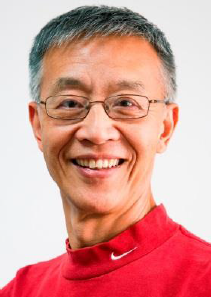
Sun Jianrong, Professor &Associate Vice President, Dean of University International College, Director of Educational Development Centre, Director of Quality Assurance Office, Macau University of Science and Technology. Serves for a number of accreditation agencies (the Higher Learning Commission, USA; Ministry of Education, China; APQN, Asia, HKCAAVQ); Areas of work and research: institutional accreditation, e-learning, assessment of student learning outcomes faculty development, quality assurance in higher education, pragmatics. |
|
Post-Conference Workshop 9 Course-Embedded Assessment of Learning Outcomes for Ideology Nurturing Embedded in College Teaching After this workshop, the trainees are able to consider the following aspects in ideology education in course design: 1.design assessment approach according to the course type 2.design assessment system according the assessment approach 3.design assessment system based on the idea of OBE. Based on the evidence-based program accreditation, alone with the course-embedded assessment approach, this workshop intends to provide two kinds of learning outcome assessment design, one is quantitative assessment approach and the other is qualitative assessment approach for ideology education in course design. Participants of this workshop please prepare your course syllabus (or course plan, course design, course objectives) in advance, which are the materials for this workshop. |
Forms and Formats for Presentation 1.Research Paper The research paper will be presented in parallel sessions and should comply with the research paradigm of SoTL, including questions, methods, analysis, and conclusions, and approaches to encourage dialogues and participation of audiences. Research paper proposals should be submitted by the first author; each paper will be given a 30-minute presentation slot, including 5-10 minutes for questions and discussion. Please submit the following information when you submit a research paper: biographies of all authors, title (within 100 characters), abstract (within 100 words), and proposal details (within 500 words). 2.Panel Panels are intended to provide panelists and audience the opportunity to exchange insights, engage in discussion, and learn from each other’s experience in the field of SoTL. Panel proposals should be submitted by the panel moderator; each panel should have two to four panelists. The time for each panel is 60 minutes or 90 minutes. Please submit the following information when you submit a panel proposal: biographies of moderator and panelists, title (within 100 characters), abstract (within 100 words),the abstract part of the proposal text should describe the panel as a whole (may also include descriptions of individual contributions and titles within the panel), and proposal details (within 500 words). 3.Round Table In the round table, the moderator will lead the participants to engage in an equal, open and in-depth discussion on SoTL topics. Each participant will share his own ideas, suggestions or experience. Round table proposals should be submitted by the moderator. It is recommended to design several topics (with case studies, reading materials, etc.) for participants to discuss. The time for each round table should be 60 minutes or 90 minutes. Please submit the following information when you submit a round table proposal: biography of moderator, title (within 100 characters), abstract (within 100 words), and details of topics and reference material(within 500 words). 4.Poster Poster presentation is based on specific SoTL research or SoTL project. It will be presented at a poster session. Posters offer the opportunity to have in-depth conversations with audiences. There will be a 90-minute poster session for this conference. Please submit the following information when you submit a poster: biography of author, title (within 100 characters), abstract (within 100 words), and poster details (within 500 words). After the poster proposal is accepted, the author is requested to make poster according to the poster template provided. 5.Workshop The conference will feature pre-conference and post-conference workshops facilitated by leading scholars in the field focusing on the themes of the conference. The conference welcomes proposals on any aspect of the theme. For the specific format, please refer to the requirements in the registration system. The author of the submitted research paper and poster presentation is encouraged to submit the full text of the paper along with the proposal. For the format of the paper, please refer to the "Instructions for full paper submission" in the appendix. After the conference, excellent papers will be recommended to relevant educational and SoTL journals. Registration
The online registration will be opened until August 10th, 2020.
| |
Academic |
Full-time Student |
Note |
Standard Registration |
800 RMB |
500 RMB |
The registration fee will cover: Keynote Speeches and Conference Sessions activities; Presentation slides released online with the approval of the speakers; One pre- or post-conference workshop. |
Workshop Registration |
500RMB per workshop Workshops can be registered separately from the conference. |
Participants who cannot attend the conference due to special reasons, please submit a refund application to celt@bit.edu.cn before 24:00 on August 10, 2020. No refunds will be processed after August 11 (including the 11th).
|

